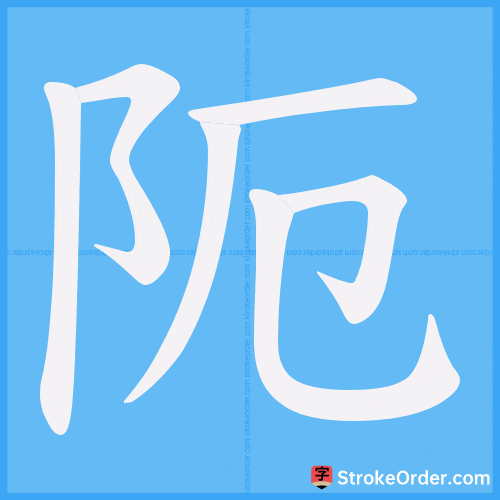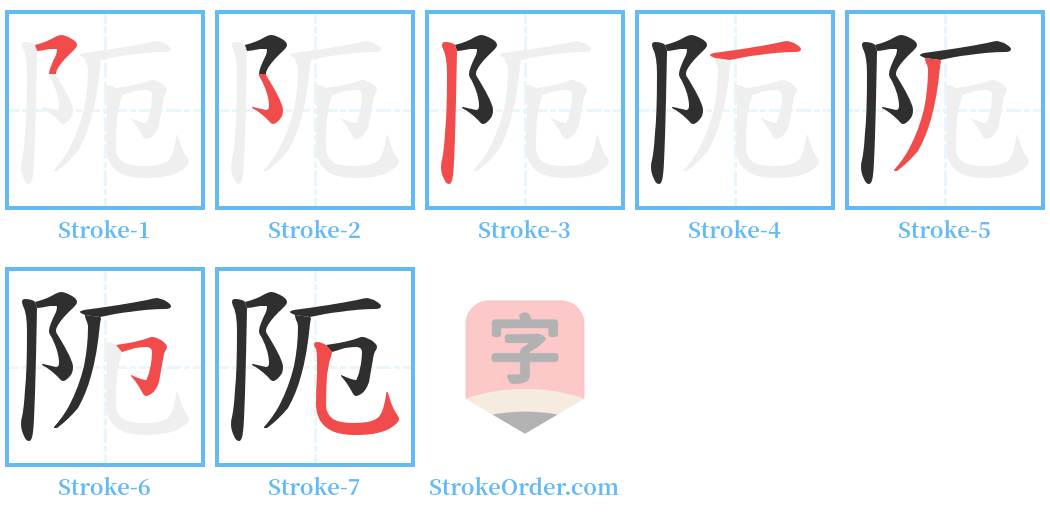阨 Stroke Order
Animated Stroke Order of 阨

Stroke Order Diagrams for 阨

Information of 阨
Pinyin
è
Radical
阝
Strokes
6 strokes
Usage
★★
Definition
阨 [ài]
形容词
1.通“隘”。
English: Passable as “narrow”.
2.窄,小。
English: Narrow, small.
引例:
1. 《庄子·列御寇》:穷闾阨巷。
English: The lanes and alleys are confined.
2. 《左传·昭公元年》:彼徒我车,所遇又阨。
English: Our carriage meets with obstacles.
3. 《孙子·地形》:料敌制胜,计险阨远近,上将之道也。
English: To estimate the enemy and devise the means of victory, understanding the dangers and distances is the way of a commander.
3.困厄;困窘。
English: Dire straits; difficult situation; in a difficult position.
引例:
1. 《列子·汤问》:帝凭怒,侵减龙伯之国使阨。
English: The emperor, in his rage, deprived the nation of Longbo and put it in a difficult situation.
2. 《楚辞·屈原·远游》:悲时俗之迫阨兮,愿轻举而远游。
English: Sorrowful of the constraints of the times, I wish to travel far and light.
3. 《汉书·刑法志》:其生民也陋阨。
English: The populace is in a shabby and confined state.
4. 左思《吴都赋》:邦有湫阨而踡跼。
English: In the state, there are narrow paths and constrained movements.
5. 《贾子道术》:优贤不逮谓之宽,反宽为阨。
English: When the blind spots in excellence are perceived to be wide, it becomes narrow.
例子:
阨穷 (困厄穷迫) (in dire straits); 阨急 (困厄急迫) (in urgent straits); 阨窘 (危厄困窘) (in a difficult position); 阨难 (灾难) (disaster).
4.另见 è。
English: See also è.
名词
1. 树木的节。《说文解字.?部》:“厄,科厄,木节也。”
English: A tree's knot. ("Shuowen Jiezi": "È refers to the knot of wood.")
2.灾难、困难。《文选.左思.魏都赋》:“英辩荣枯,能济其厄。”
English: Disasters and difficulties. ("Wenxuan": "The eloquent can navigate through their difficulties.")
宋.苏轼〈三槐堂铭〉:“盗跖之寿,孔颜之厄,此皆天之未定者也。”
English: In Song Dynasty, Su Shi wrote: "The longevity of the thief and the troubles of Confucius were all undecided by fate."